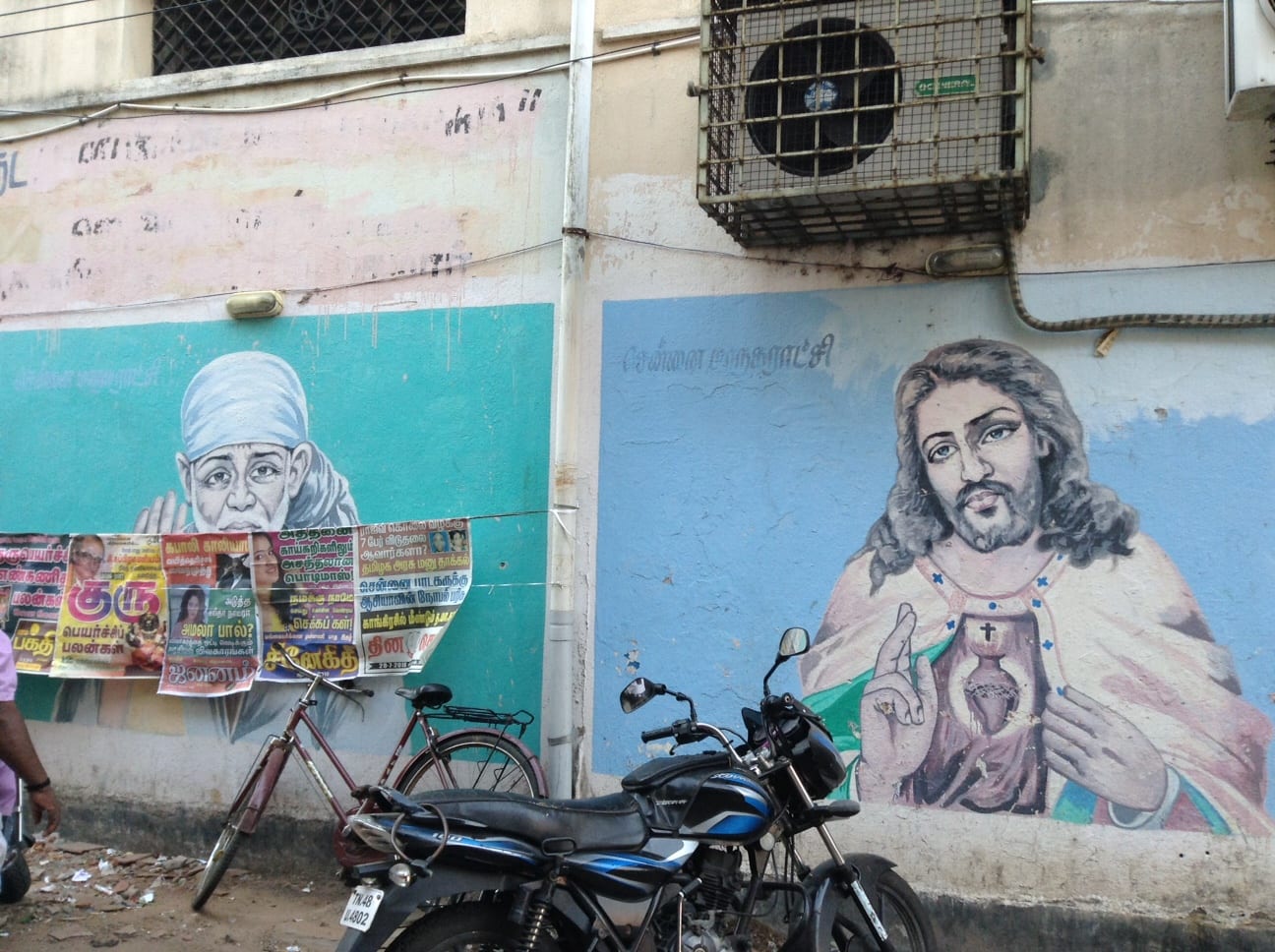No one we have experienced yet on this trip has been anywhere near the cultural icon that Faluda man has become. Most days he lurks on the dusty highway outside of the Sai Baba temple, with hours as murky as the rest of India. You’ll find him past penny-a-piece candy man, past the public urination and the motorcycles zooming upstream through traffic. Faluda Man is a mystery. His products range from the borderline familiar – “chocolait”, or the on-menu but non-existent “vanila” – to the bizarre, like the elusive “black sqard”. Elusive too is the faluda itself, prepared ladled from soupy vats and served perhaps with… Chia? Fruit pieces? That man could serve anything out of his cart and we’d believe it, chalking up goop to a cultural experience. His faluda is sold next to temple offerings like puja, a word that refers to the food, flowers, and other gifts offered to deities at Hindu temples. What would his goods be an offering to? The gods of $1 consumerism, of working the same job everyday to marginally fill your family?
On our last day at HMI we eagerly skipped back to the belovéd cart. That faluda has brought us together – leaving the gates of our small paradise here at the institute to the streets, the thrill of exploring a new neighborhood so different than our own. Trying to guess what flavors we might receive, and the difference between milk, faluda, lassi, and bar. Craving a brief escape from our lives here as students. Faluda Man had become the shining star of camaraderie, until, as abruptly as our wonderful time here at the HMI has come to an end, he ceased to be there. I wish him well; maybe he has found a more productive spot to vend, or is with his children, taking off time for faith, or found some other excited tourists to sell to sensing our imminent departure. Faluda man will forever be a part of my Indian remembrances, living in and enlivening a piece of my heart when I think back fondly upon this journey and our magnificent stay here at the HMI. Clearly Faluda is a beverage of the Garden of Eden.
